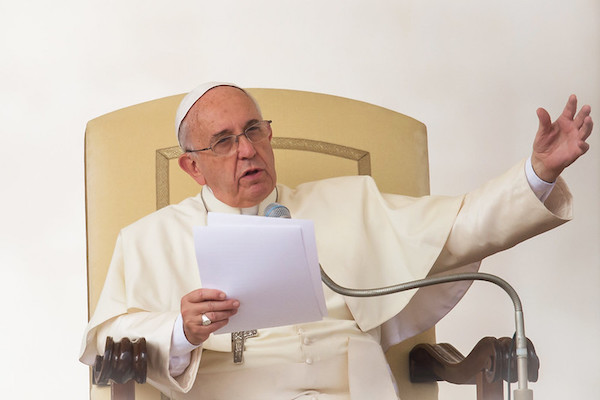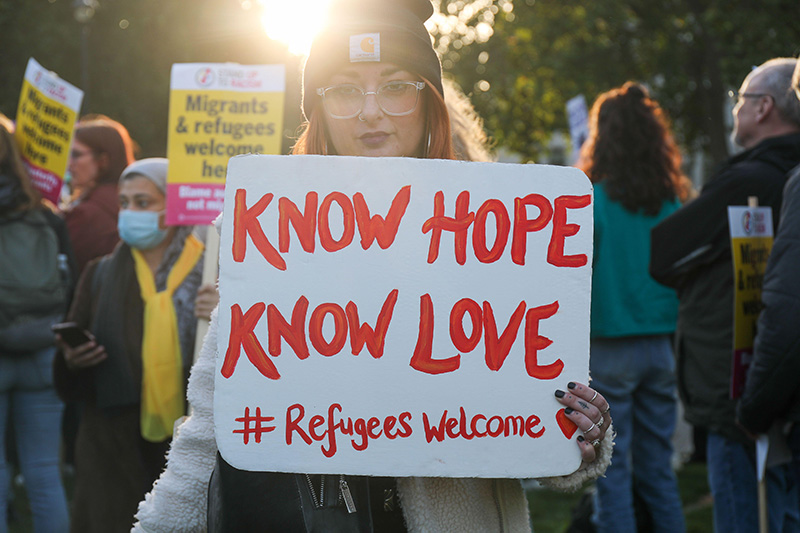There are many different kinds of silence. There are rich, comfortable silences in which two people are completely content in each other’s company. There are those awkward silences that occur when we have said the wrong thing. There are silences in which, it is said, we can touch the face of God.
This wasn’t any of those kinds of silences. There were just the three of us in the room for the purposes of the medical report – the torture survivor, the interpreter and me. To be absolutely accurate, it wasn’t total silence because it was broken by the irregular, rapid breathing pattern of someone trying very hard not to allow their sobs to break out into uncontrolled cries of anguish. This kind of silence is crushing, and it had followed a graphic description of hideous, almost unimaginable mistreatment at the hands of security forces in a country thousands of miles away from us. It was a silence to which there was really no adequate response. For the moment, in these particular circumstances, it simply had to be endured. In any case, I was busy trying to control my own feelings and decide whether to discontinue the consultation, for all our sakes, or try to carry on.
Freedom from Torture is a UK charity which, since its formation in 1985, has provided support for more than 50,000 victims of torture who have fled to the UK for asylum. This support takes the form of psychological therapy, social assistance and advice, and support with asylum claims, particularly in the form of specialist medicolegal reports which document the evidence of torture, both physical and psychological. As volunteer doctors, we undertake to provide detailed medicolegal reports for the torture survivor’s legal representative which are used in support of the asylum claim. The reports detail the nature and location of scarring, give a reasoned professional opinion of how each scar was caused and include a psychological assessment.
A forty-odd year career in front-line hospital surgical practice – during which I have witnessed some terrible things – has not fully prepared me for some of the things I would hear and see in my work with Freedom from Torture. Or perhaps more accurately, it may have partially prepared me, but has not protected me. In particular, the utterly gratuitous cruelty of the torture inflicted, the acts sometimes almost beyond imagination, and the profound mental health effects which I would encounter in clients, has taken me quite by surprise. Perhaps it shouldn’t have done, but it has.
Among many other physical and mental health problems, torture survivors frequently suffer with post-traumatic stress disorder. This is a disorder of memory in people who have been traumatised, in which they are unable properly to process and store the memories of the traumatic event. There are a number of consequences of this – they are often unable to recall at will details and chronologies of their torture; yet paradoxically the awful memories may thrust themselves in to the consciousness at any time, unbidden. They may therefore take steps to avoid situations which would remind them of their awful suffering. And if they are required to recount the events of mistreatment and circumvent their coping mechanisms, they may experience “re-traumatisation” which may be such an intense re-living of their experiences that they lose their grip on reality and enter a state of trance-like psychological dissociation.
These intense, intrusive memories are – somewhat innocuously – termed “flashbacks”. A “flashback” is a terrifying thing, obviously, to experience, but it can also be terrifying for those who witness its effects.
While I previously had a vague insight into what the words “torture” and “trafficking” meant, it wasn’t until I had personal encounters with asylum seekers that I really, genuinely, started to understand. The experience has changed my life. I now also see the hostile media coverage and political language for the cheap lies which they are. The intent is always to dehumanise, and to vilify. The so-called “hostile environment” which was once adopted by the Home Office was an attempt to produce – among other things – exactly this effect. Recent language referring to asylum-seeking refugees as, for example, comprising “an invasion” is in the same category.
Pope Francis has spoken often, and forcefully, about the plight of migrants, and our duties towards them: “…Each of them has a name, a face, and a story, as well as an inalienable right to live in peace and to aspire to a better future for their sons and daughters.”
I have been surprised that many people do not seem to have fully grasped the awfulness of the plight of traumatised refugees and spoken out more forcefully against it. Perhaps it can be viewed as yet another, crushing, kind of silence. To be fair, it was only when I encountered refugees personally in this situation that “the penny dropped” with me. Nevertheless, surely in any civilised country, anyone – particularly anyone calling themselves a Christian – should be standing up to speak out, loud and clear, about the injustice of the way that asylum seekers and torture survivors are treated. The very notion that a traumatised refugee in need would be turned away from the UK, and sent to a distant country such as Rwanda, is quite outrageous – it is a policy which is both cruel and inhuman. While statements of government policy may say that the vulnerable are excluded from the plans, the reality (as any asylum seeker will tell you) is that routinely they are not listened to, and their stories are not believed. Time and again I have documented scarring which is absolutely typical of the alleged mistreatment, and yet the history has not been believed during their prior Home Office assessments.
Edmund Burke is often quoted as saying: “The only thing necessary for the triumph of evil is for good men to do nothing.” But perhaps another of his quotes is even more apposite for this situation: “Nobody made a greater mistake than he who did nothing because he could do only a little.”
Surely, if our faith is to mean anything, it has to have a practical application in caring for the vulnerable. Surely, it has to be directed towards bringing us to a deeper personal encounter with the Son of God who suffered and died for us – based on a real desire within us to gaze upon his face – a face which was in reality, that of a refugee and a face which was bloodied, lacerated and disfigured by torture.
Tim Fetherston is a volunteer medicolegal doctor who has worked with Freedom from Torture since 2014. He lives in the North East. If you would like to donate to Freedom from Torture and help survivors rebuild their lives, you can do so here.



 Loading ...
Loading ...
What do you think?
You can post as a subscriber user ...
User comments (0)